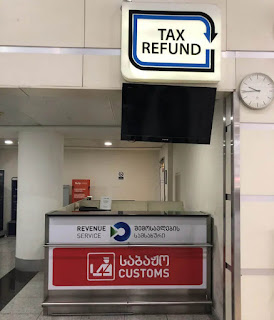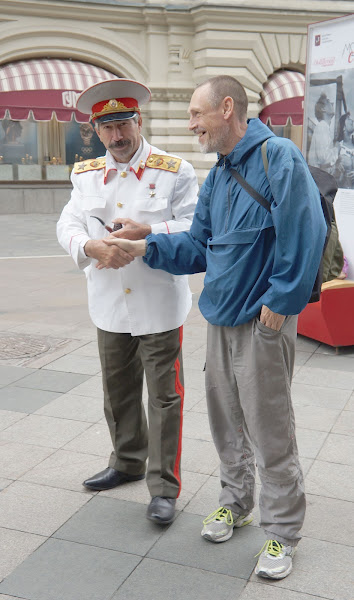Is time money?
Is time money? People have to sell less time in Buenos Aires to buy the same amount of time than in Helsinki.
This is our last day in Buenos Aires. We have spent here altogether eight months and will head next to Indonesia to visit Santeri's old school friend and enjoy the wonders of world including early New Year fireworks and coughing birds (bird flu).
Santeri has been busy composing music.
We wrote a farewell letter to our Greentower neighbours in Spanish.
Comparing costs in working hours
We enjoyed our stay thoroughly although Argentina did not prove to be 100% optimal for us. Still, many things are so much better here than in Europe. The first and foremost are living costs. We made a chart (see below) comparing some prices in Argentina and in Finland. We also counted how many hours one must work to buy those goods and services. The column "price difference" shows the absolute price difference between Helsinki and Buenos Aires. For example, fillet Mignon costs in Helsinki 25 Euro and in Buenos Aires less than 4 Euro per kilo.(*)
| Helsinki work time (h) | BuAs work time (h) | Price difference (%) | |
| Fillet mignon/kg | 2,0 | 1,4 | 84% |
| Home cleaning | 3,2 | 0,5 | 96% |
| Cafe in cafeteria | 0,3 | 0,3 | 77% |
| Lunch | 0,8 | 0,7 | 78% |
| Vodka bottle | 1,6 | 1,1 | 84% |
| Wine bottle | 0,6 | 0,5 | 80% |
| Pack of cigarettes | 0,4 | 0,4 | 76% |
| Fuel/liter | 0,1 | 0,2 | 69% |
| Rent | 72 | 64 | 79% |
| Bus ticket | 0,2 | 0,1 | 92% |
| A book | 2,0 | 2,1 | 75% |
| Cinema ticket | 0,8 | 0,7 | 78% |
| Hamburger | 0,3 | 0,6 | 53% |
| Laundry | 0,8 | 0,5 | 86% |
| Broadband | 3,2 | 3,2 | 77% |
| An escort | 3,2 | 1,6 | 88% |
| Hair cut | 1,2 | 0,6 | 88% |
(*) These numbers are based on our own experience in both cities except for the escort service.
In a nutshell, people have to sell less time in Buenos Aires to buy the same amount of goods and services than in Helsinki. This means they have more free time, and they get better value for their time — in case one assumes it is possible to value time with money.
The gap between the countries is huge. In Argentina you get more value for your money than in Finland. For example, in Argentina renting a flat requires 64 hours of work per month, while in Finland one has to work 72 hours. The gap is far greater in services. No wonder, because Finland is actually a self-service society because of sky high labour costs and extremely expensive social security.
Still, what is more important here than just comparing the prices and purchasing power, is to realize that all buying is in fact selling of one's precious time. One has to work, in other words sell one's time. Then one buys food and shelter for satisfying various needs. Satisfying those needs is buying time. One could naturally grow or hunt his food and build his own shelter, but these are bought to save time.
In modern welfare societies time-selling seems sometimes even silly. People buy all kinds of time-saving things, for example home machinery that make cooking faster. Or they drive to a fast-food restaurant to swallow quickly something. 24 hours is definitely not enough in this trade between goods and time. Just like in all business, also in time business people end up loosing all their time. They receive less time for the time they sell.
Time itself is not money, it is the one and only real asset we have in life, and it can be used only once.
After spending almost a year in total idleness, we have discovered how enjoyable basic things in life are. We do not need any extra experiences that can be bought with money, like sipping a glass of wine in some fancy restaurant that was recommended in a glossy trend magazine. We do not consume tourism either, where busy people are taken to places that some people have defined to be worth seeing, given a quick and compact tour and then ripped off. Instead, we have tried to concentrate on living in the countries we have stayed in.
Since we do not need additional attractions, we have started to question why to live in big and dusty cities. In Indonesia we will live in a small fishing village, and if we ever come back to Argentina, we will be likely to settle down in the countryside rather than in Buenos Aires. All the disadvantages of the rat race seem to culminate in urban life style: business, fuzz and nonsense.
The Political Statement Of The Month
IMF (International Monetary Fund) should force Argentina to pay back all the loans with interests as soon as possible to make this country raise again. Currently many Argentinians are feeling themselves clever when they have managed to avoid their responsibilities. In Argentina everyone who succeed in cheating or stealing without getting caught are considered to be heroes.
Keywords: Time, money, Greentower, Buenos Aires, Argentina, Finland, Helsinki, self-service society, price, purchasing power, selling time, purchasing time, tourism, the rat race, IMF.










Comments